Wood pellet export scale is forecast to decrease by 17% in 2023 compared to last year.
After a "feverish" period in 2022 with a 30% increase in wood pellet exports and a 150-200% increase in export prices compared to 2021, wood pellet exports are currently declining in both volume and export unit prices, especially in the Korean market. If the current export momentum is maintained, the scale of wood pellet exports in 2023 will decrease by about 15-17% compared to 2022.
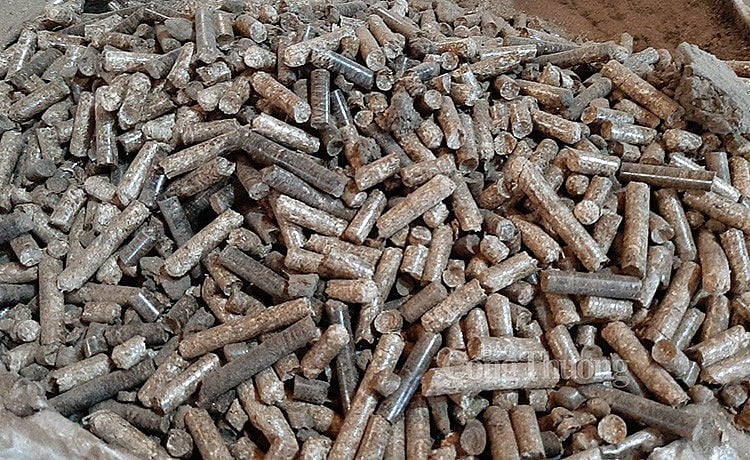 |
| Wood pellets. Photo by Nguyen Hanh |
In the first 9 months of 2023, while the export volume to the Japanese market reached 2 million tons, equivalent to nearly 82% of the export volume to this market in 2022, the export volume to Korea only reached nearly 1.3 million tons, equivalent to 56% of the export volume to this market in the whole year of 2022.
Sharing from some export enterprises shows that the decrease in the amount of Vietnamese tablets exported to Korea is not due to a decrease in demand in this market but because Korean enterprises import tablets from other sources, including Russia.
Vietnam’s pellet industry still has the opportunity to expand its export market, especially in Japan. According to pellet enterprises, the demand for wood pellets in Japan will expand 3 times compared to the present. Currently, Vietnam is supplying about 80% of pellets for this market. The opportunity to expand market share here is huge.
Pellets exported to Japan require sustainability certification. This is because the supply of pellets made from palm kernel oil (PKS) originating from Indonesia may not be certified and therefore will not meet the requirements of the Japanese market. If this happens, Vietnamese enterprises will have the opportunity to replace the supply of PKS from Indonesia.
In the Korean market, there is not much room for Vietnamese enterprises to develop in the future. The size of this market has not changed much. This is a relatively easy-going market, accepting supplies with low quality and standards. Currently, some Korean enterprises, mainly small enterprises, continue to buy pellets from Russia. Korea is the only country in the world that still uses supplies from Russia.
According to some Vietnamese enterprises currently exporting tablets to Korea, some major Korean buyers are starting to require evidence of traceability. According to these enterprises, in the next 4-5 years, product traceability requirements will be mandatory for products exported to Korea.
Still facing many difficulties
Although it has only been established for a short time, the pellet industry has become an important component of the wood processing industry. The industry continues to expand and has much room for development in the future, both in the export market and in the domestic market. However, the industry is facing a number of difficulties that directly affect its sustainable development.
One of the biggest difficulties is the unsustainability of raw wood input sources in terms of both quantity and standards and quality. Dr. To Xuan Phuc - Executive Director of the Forestry Policy, Trade and Finance Program of Forest Trends Organization, said that solving these difficulties requires the Government to have reasonable policy mechanisms, especially policies on balancing processing capacity and planted forest material areas.
Specifically, local management agencies need to calculate the raw wood supply capacity of planted forest areas (and processing facilities) within their locality, assess the capacity and output of processing projects, and then decide to license these projects according to the raw material supply capacity.
This decision needs to ensure that the processing capacity of enterprises using the same source of raw wood (e.g. the same source of plantation wood) does not exceed the raw material supply capacity of the region. This decision also requires calculations on the interaction and competition between processing components of enterprises using plantation wood - including facilities processing wooden furniture, peeled boards, plywood, chips, pellets, etc.
Investment approval decisions based on these aspects will help reduce unsustainable competition for input materials between enterprises in different wood industry sectors and between enterprises in the same sector. This will contribute to making enterprises in the pellet industry (and in other wood industry sectors) develop more sustainably.
With its current nature, the wood pellet industry deserves to receive more attention in terms of policy mechanisms. The raw wood input of the industry is currently by-products of the processing industry and/or of planted forest wood sources.
Because it is a by-product, this raw material is often not highly valued in terms of economic value. In some localities where there is no presence of pellet production facilities, this by-product is even being burned.
However, this by-product is currently generating nearly 800 million USD in export revenue each year. This by-product is also playing and will continue to play an important role in reducing greenhouse gas emissions, not only in countries importing this product from Vietnam but also has the potential to reduce emissions in Vietnam itself.
However, the industry has not yet received any mechanisms or policies to promote sustainable development. Pellet industry enterprises deserve to receive dedicated mechanisms and policies. These mechanisms and policies can be direct support for manufacturing enterprises (for example, incentives in accessing capital, technology, land, etc.).
Support mechanisms and policies can also be indirect, through tools to encourage the expansion of export markets and domestic consumption of this product, including incentives on electricity prices using pellets, incentives for businesses switching from high-emission raw materials to using pellets. Effective implementation of policy mechanisms specifically for the pellet industry will contribute significantly to promoting the industry's sustainable development in the future.
Source link


![[Photo] General Secretary To Lam attends the 8th Congress of the Central Public Security Party Committee](https://vphoto.vietnam.vn/thumb/1200x675/vietnam/resource/IMAGE/2025/10/4/79fadf490f674dc483794f2d955f6045)
![[Photo] Bustling Mid-Autumn Festival at the Museum of Ethnology](https://vphoto.vietnam.vn/thumb/1200x675/vietnam/resource/IMAGE/2025/10/4/da8d5927734d4ca58e3eced14bc435a3)


![[Photo] Solemn opening of the 8th Congress of the Central Public Security Party Committee, term 2025-2030](https://vphoto.vietnam.vn/thumb/1200x675/vietnam/resource/IMAGE/2025/10/4/f3b00fb779f44979809441a4dac5c7df)









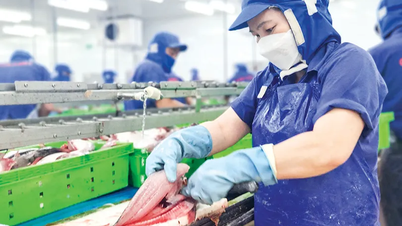









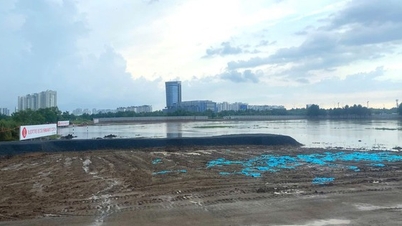







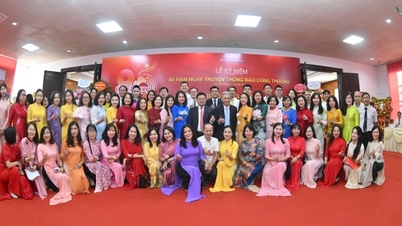


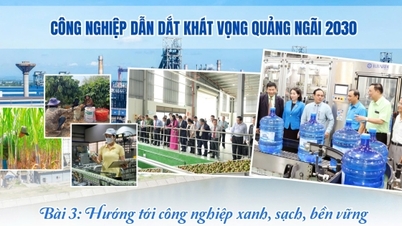
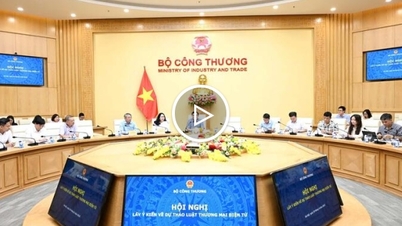


![[Infographic] Notable numbers after 3 months of "reorganizing the country"](https://vphoto.vietnam.vn/thumb/1200x675/vietnam/resource/IMAGE/2025/10/4/ce8bb72c722348e09e942d04f0dd9729)
























![[VIDEO] Summary of Petrovietnam's 50th Anniversary Ceremony](https://vphoto.vietnam.vn/thumb/402x226/vietnam/resource/IMAGE/2025/10/4/abe133bdb8114793a16d4fe3e5bd0f12)
![[VIDEO] GENERAL SECRETARY TO LAM AWARDS PETROVIETNAM 8 GOLDEN WORDS: "PIONEER - EXCELLENT - SUSTAINABLE - GLOBAL"](https://vphoto.vietnam.vn/thumb/402x226/vietnam/resource/IMAGE/2025/7/23/c2fdb48863e846cfa9fb8e6ea9cf44e7)































Comment (0)